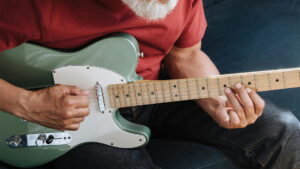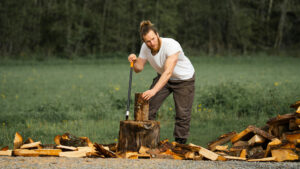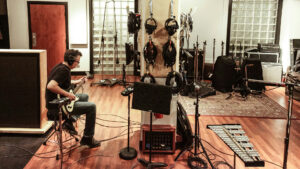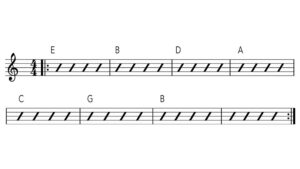
Are You a Lyrical Guitar Player
Soloing in a lyrical way means that you’re playing lines that could be sung, so that automatically rules out a lot of fast runs and wide interval leaps.
Special for New Monthly Memberships – First 2 Months for $29. Through June 30, 2025.
Welcome to the Fret Blog by Fretboard Biology. The Fret Blog provides tips for guitar players on a variety of topics like playing rhythm guitar, lead guitar, music theory, how to practice, how to make the stage a comfortable place and much more.
Feel free to share with all your guitar playing friends!

Soloing in a lyrical way means that you’re playing lines that could be sung, so that automatically rules out a lot of fast runs and wide interval leaps.

I get a few humorous comments about wearing my guitar up high. So, here’s why I do it.

Playing guitar in front of a live audience for an entire evening used to be the norm for a musician. That was the whole reason to play.

We all know that music is a tool for expression. One element that is sometimes overlooked in lessons is how to manipulate the time.

If you’re someone trying to make a living playing guitar, and you’re paying your bills, give yourself a big pat on the back.

The whole goal of preparing for a gig is to be at ease on stage, because no musician plays well when stressed.

All work and no play makes Jack a dull boy. And even if your name isn’t Jack, it’s so true.

If you haven’t already, have your band take the next step of maturation – and that’s to work hard on dynamics.

Doubling guitar parts when you’re recording is pretty common, but can take some practice. You can double either rhythm guitar parts or guitar solos.

Mistakes happen. You WILL make a mistake when performing. And so will your bandmates. Not everyone reacts the same, but it’s important to think about how you SHOULD react.

If it feels like your solos are kind of a wandering mess, one remedy is to think in terms of 4-bar phrases.

One of the most common questions students ask is – how much should I practice? I always flip that around and ask, how much time can you set aside to practice?